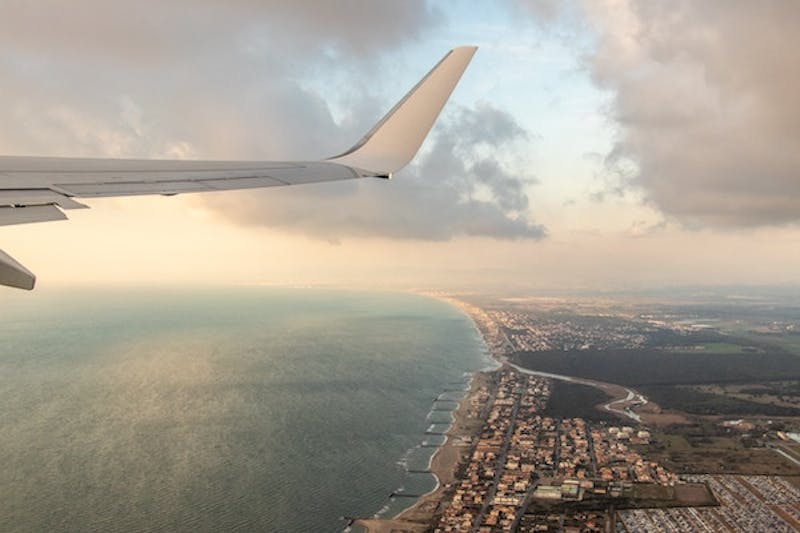
While flying in a plane, you have felt your ears pop at least once or twice. With summer holidays behind us, families begin to plan ahead for Thanksgiving and winter break trips. This week, we are going to discuss why people feel the need to pop their ears while experiencing ear barotrauma.
Why do I feel like I need to “pop” my ears?:
Here in Florida, we really do not experience too much elevation change while simply driving. If you are planning on taking a road trip to visit family in Alabama, for example, you may experience ear popping.
Britton Hill is the highest point of elevation in Florida. It is in the panhandle of Florida. It is about three hundred forty-five feet high. Floridians do not experience this in regular day life because we do not have drastic elevation changes.
Today, we want to talk about what causes your ears to pop. Ear barotrauma is a condition that causes ear discomfort due to changes in pressure, many times elevation. In your right and left ear, there is a tube that connect the middle section of the ears to the throat and nose.
That tube is called the eustachian tube. Barotrauma occurs when the tube is blocked. Many babies experience this for the first time when traveling by plane.
As onlookers can tell, it is quite painful if you cannot properly pop your ears on your own. Popping your ears regulates the pressure in the middle of your ear. When it comes to your ears, it is best to be gentle no matter what the issue at hand is.
When popping your ears, it is no exception. Barotrauma is not harmful in some people, but constant cases may cause further complications for your ear health. Most importantly, it is necessary to understand the difference between occasion (acute) barotrauma and chronic (recurring).
Once you are aware of the difference, you can know when it is necessary to seek medical attention for the matter.
Symptoms of ear barotrauma:
When experiencing ear barotrauma, you will most likely have discomfort in your ears. For mild to moderate cases, people may feel the following symptoms:
- ear discomfort
- dizziness
- stuffy feeling in ears
- slight hearing loss (temporary)
- difficulty hearing
If you ignore these symptoms of mild ear barotrauma, you may eventually feel more serious symptoms which include:
- ear drum injury
- ear pain
- nosebleed
- moderate to severe temporary hearing loss
- difficulty hearing
- feeling of pressure in the ears
Once you seek and receive treatments, most symptoms should go away in time. Hearing loss is usually always temporary and reversible as this is one of the most common questions asked while seeking treatment for ear barotrauma.
Stop by next time to learn about the causes of ear barotrauma. We will then continue to share why people may safely experience relief by popping their ears in certain ways, with doctor’s permission of course. Thanks for stopping by!
Always make an appointment at Orland ENT Hearing Center in Orlando if you experience ear pain.
Staff Writer

